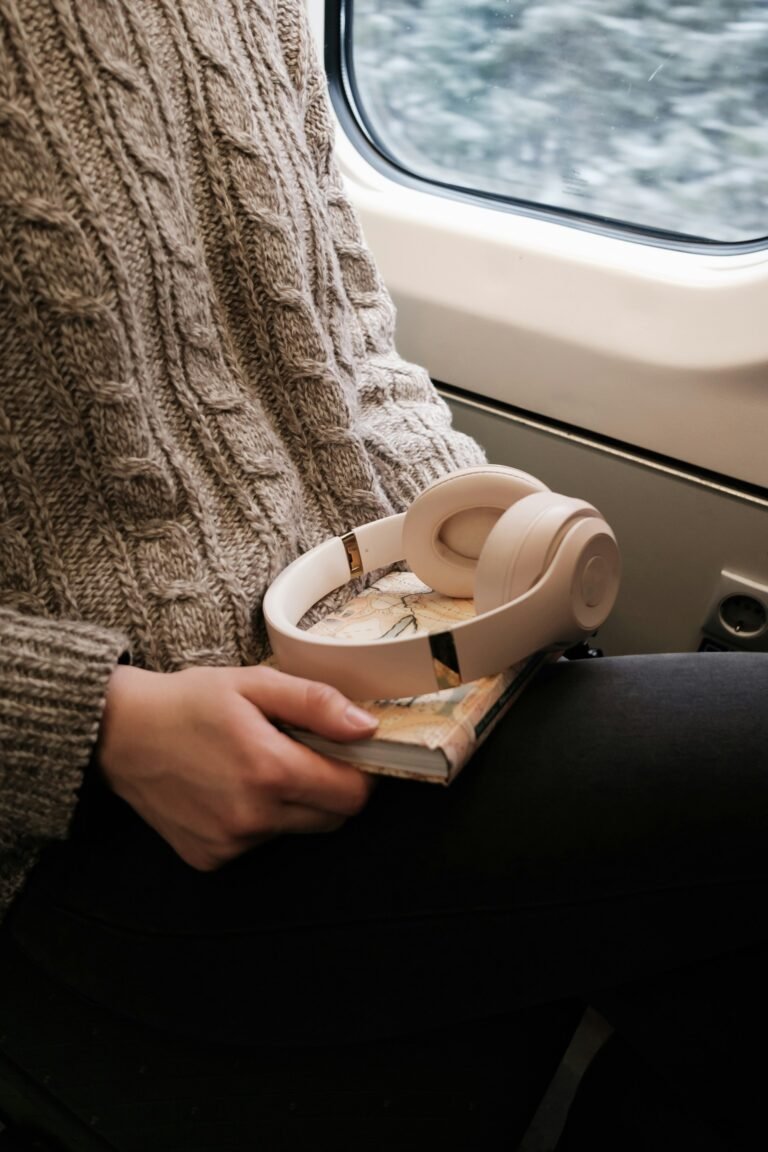Must Know Things About Traveling to Europe: Essential Tips for a Smooth Journey
Traveling to Europe can be an exciting and enriching experience. However, there are essential tips that can make your journey smoother and more enjoyable.
Knowing the specifics about visa requirements, currency exchange, and local customs can save you time and avoid confusion during your trip.
As you plan your adventure, remember that Europe is diverse and each country has its unique charm and quirks. Whether it’s understanding public transport systems or familiarizing yourself with cultural etiquette, a little preparation goes a long way.
You’ll find that being aware of these must-know aspects will not only enhance your travel experience but also help you connect more deeply with the places you visit.
Embrace your wanderlust with the right information at your fingertips, and explore Europe like a seasoned traveler!
Essential Travel Documents
When traveling to Europe, having the right documentation is crucial. This section highlights the necessary travel documents you need to ensure a smooth journey.
Passport Validity and Visas
Your passport is the most critical document for international travel. Ensure that it is valid for at least six months beyond your planned departure date from Europe. Many countries require this for entry.
Also, check if you need a visa based on your nationality and destination. For instance, EU nationals can travel freely within member states, while non-EU nationals may require a Schengen Visa for short stays. Always verify the specific entry requirements for each country you plan to visit. Keep copies of your passport and visa in case of loss.
Travel Insurance Documents
Travel insurance is not just a safety net; it’s essential for your peace of mind while exploring Europe. Before your trip, purchase a comprehensive policy that covers medical emergencies, trip cancellations, and lost belongings.
Ensure you have the insurance documentation easily accessible, either as a printed copy or on your smartphone. Many providers offer digital versions of your policy. Familiarize yourself with the policy details, such as emergency contact numbers and coverage limits. This way, you can act swiftly in case of an emergency.
Health and Vaccination Records
Being aware of health requirements is vital for travelers. Some countries in Europe may require specific vaccinations, or you might need proof of vaccination for entry into certain venues.
It’s advisable to carry a record of your vaccinations, especially for COVID-19, as travel restrictions can change frequently. Consider getting a European Health Insurance Card (EHIC) if you are an EU citizen. This card provides access to state-provided healthcare in other EU countries. Always check the latest health guidelines before you travel to stay informed about any necessary precautions.
Currency and Budgeting
When traveling to Europe, understanding the currency and effectively managing your budget are crucial for a smooth experience. You’ll need to be familiar with the Euro and have a solid grasp of budgeting techniques to make the most of your trip.
Understanding the Euro
The Euro is the official currency of 20 of the 27 European Union countries, known as the Eurozone. Countries like France, Germany, and Italy accept Euros, simplifying transactions as you travel.
Familiarize yourself with common denominations: €5, €10, €20, €50, €100, €200, and €500 notes, along with 1 cent to 2 Euro coins.
It’s wise to check the current exchange rate before your trip. Use online tools or currency exchange apps to get accurate information. When you arrive, consider using ATMs for withdrawals, as they generally offer better rates than currency exchange offices. Many airports and city centers have ATMs readily available.
Budget Planning Tips
Creating a budget before you leave can set you up for financial success. Start by estimating your daily expenses, including accommodation, meals, transportation, and activities.
A simple list can help:
- Accommodation: Plan according to your comfort level.
- Food: Budget for meals in restaurants and snacks.
- Activities: Research entrance fees for attractions and tours.
Consider using budgeting apps to track your spending while you travel. Allocate some extra funds for unexpected expenses, ensuring you have a buffer for anything that comes up.
Cash vs. Card Payments
Deciding between cash and card payments is essential. Many places in Europe accept credit and debit cards, which are convenient. Cards often provide a better exchange rate, and you can earn rewards on your purchases.
However, having cash on hand is still important. Smaller shops, markets, and rural areas may only accept cash.
It’s a good idea to withdraw a small amount of local currency upon arrival for immediate expenses.
Additionally, notify your bank about your travels to avoid any issues with card usage abroad. A mix of both cash and card payments will give you flexibility in various situations.
Communication Essentials
Staying connected while traveling in Europe is vital for navigation, emergency situations, and simply sharing your experiences. Familiarizing yourself with mobile networks, internet accessibility, and language basics will enhance your journey.
Mobile Networks and SIM Cards
When traveling throughout Europe, consider your mobile connectivity options. Local SIM cards can be a cost-effective solution to stay connected without incurring hefty roaming charges. Most countries have multiple providers offering prepaid plans.
Tips for choosing a SIM card:
- Check compatibility: Ensure your phone is unlocked and compatible with European networks.
- Research providers: Popular ones include Vodafone, Orange, and Three, which offer extensive coverage.
- Consider data usage: Assess how much data you need for maps, social media, and browsing.
Local SIM cards can usually be purchased at airports, convenience stores, or telecom shops.
Wi-Fi Accessibility and VPNs
Wi-Fi availability is common in cities and towns across Europe. Cafés, hotels, and public spaces often provide free Wi-Fi, making it easy to stay connected. However, public networks can be risky.
To protect your data:
- Use a VPN: A Virtual Private Network encrypts your information, shielding your data from potential hackers on public Wi-Fi.
- Be cautious: Avoid accessing sensitive accounts like banking while on unsecured networks.
Make sure to download important maps and travel documents before relying solely on Wi-Fi.
Language and Common Phrases
While many people in Europe speak English, learning a few basic phrases in the local language can enrich your experience. It shows respect and can make interactions smoother.
Key phrases to learn:
- “Hello” – Greetings will help you start conversations.
- “Thank you” – Being polite goes a long way.
- “Do you speak English?” – Handy for navigating language barriers.
Consider downloading a translation app. This will help you when you need assistance or are in rural areas where English speakers are less common.
Transportation and Logistics
Getting around Europe can be an exciting part of your travels. Understanding the transportation options available will help you navigate cities efficiently and enhance your experience.
Public Transit Systems
Many European cities offer robust public transit systems that include buses, trams, and subways.
Buses connect various neighborhoods, while trams often cover central areas. Subways, like those in London and Paris, provide quick access to major attractions.
Tip: Consider purchasing a multi-day pass for unlimited travel, which can save you money.
Familiarize yourself with local transit apps to view routes and schedules. Most major cities have free maps available at stations. Clean, efficient, and user-friendly, public transit usually operates on time, making it a reliable option for exploring.
Ridesharing and Taxis
While public transport is excellent, ridesharing services like Uber are also available in many cities. These services can be a convenient option, especially late at night or in less accessible areas.
Taxis are widely available but can be more expensive than public transit. Always ensure you use licensed taxi services to avoid scams. When hailing a taxi, look for the illuminated sign on top that indicates availability.
Tip: Check if your ridesharing app is operational in the city you’re visiting, as services can vary.
Payment methods may differ; cash is still popular in many places, though credit cards are becoming increasingly accepted.
Rail Travel Across Europe
Train travel is one of the best ways to see Europe. The rail network is extensive, connecting major cities across countries, making it easy to transfer between locations. High-speed trains, such as the Eurostar and TGV, are fast and comfortable.
Tip: Booking in advance can save you money, especially during peak travel seasons.
Consider a Eurail Pass if you plan to visit multiple countries, as it provides flexibility and convenience. Each country has its own train system, so be sure to check schedules and platforms ahead of time.
Traveling by train allows you to enjoy the scenic countryside, turning transportation itself into a memorable part of your journey.
Accommodation Tips
Finding the right place to stay is crucial for your European adventure. With diverse options—from quaint hostels to luxurious hotels—knowing how to navigate your choices enhances your experience. Consider comfort, location, and local customs when making your selection.
Choosing the Right Lodging
When selecting accommodation, think about your travel style. If you prefer social interactions, hostels are great for meeting fellow travelers. For more privacy, apartments or boutique hotels provide a homier feel.
Location matters. Staying near public transport can save you time and money. Research neighborhoods to find areas that suit your interests—whether it’s nightlife, culture, or relaxation.
Compare amenities offered. Free Wi-Fi, breakfast, or unique local experiences can elevate your stay. Always read recent reviews for real insights into cleanliness and service.
Booking Platforms and Deals
Use trusted booking platforms to compare prices efficiently. Websites like Booking.com or Airbnb often feature user reviews, making decision-making easier.
Set price alerts to snag the best deals. Flexibility with your dates can yield significant savings. Consider off-peak seasons, which often bring lower rates and less crowded venues.
Don’t overlook direct booking. Sometimes, hotels offer exclusive discounts or perks if you book directly through their website.
Local Hospitality Customs
Familiarize yourself with local hospitality norms. In some countries, tipping is customary. In others, it may not be expected. Check local practices to avoid any faux pas.
Respect check-in and check-out times. Ensure you communicate any changes with the hotel. Many European establishments value punctuality and might charge for late check-outs.
Engaging with your hosts can enrich your experience. Whether it’s a friendly chat or following local recommendations, small interactions often lead to memorable moments.




